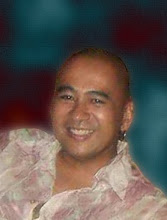A friend of mine once asked, "Do Buddhist's believe in God?" I replied, "Well, yes & no", and smiled when I recognised the same confusion on his face that I had once worn when I first began to study Buddhism. I began to tell him what my personal views were on the subject.
Buddhism is what are known as the teachings of Lord Buddha based on the Four Noble Truths. The goal of Buddhism is to "awaken" and become free from suffering. Meditation is the vehicle. The teachings are the path, and compassion and loving kindness is the practice. Buddhism is not about becoming a "good" in a religious sense, but a compassionate person truthful to one's heart. It is not based on beliefs or religious dogma, but on direct experience since beliefs may not be rooted in reality; I have a friend who has met "Jesus" and "Elvis" at the Seven-Eleven.
Beliefs are fabricated by the thinking mind influenced by what you are taught and what you have experienced. If your experiences are clouded by your beliefs and your beliefs are distorted, then what you experience is not necessarily true.
Children in many ways are more "enlightened" than we are. They experience their lives directly and are more honest to their hearts. If they are sad, they cry. If they are angry, they throw a tantrum. We teach them to hide their feelings and judge some emotions as being "bad". But is how you feel the truth?
Only your heart knows. The Buddhist path could be seen as the journey towards one heart, the heart of the Buddha. To make the journey means means peeling back the layers of one's beliefs, the sum parts of your "ego" like an onion. It's a continuous process. Each new layer reveals a deeper truth. This is the journey towards Enlightenment. The map the practitioner must traverse is to see the limitations of the thinking mind, understand the nature of one's emotions and to reveal the feeling that resides beneath it.
Enlightenment happens in sudden flashes of insight into yourself, and the true nature of reality. It's not a solid experience. (At least that's where I am at at the moment). Like in meditation, it can't be forced. These flashes of insight only happen when the "ego" let's go of ideas of accomplishing something but simply being.
The "ego" is a fabrication of the thinking mind. It doesn't exist. If you ask yourself, "who am I?", you can recite a list of your personal details, your life experiences and your likes and dislikes. But if you were involved in a car accident, lost your memory and couldn't remember your name or your life history for example, does that mean you cease to exist!? Have you ever had dreams whilst you slept where you have seen yourself interacting with others in situations in your dream world? Who is this "person" watching you?!
That watcher is you; the real you, your intuitive awareness - your own heart. The practice of meditation is bring your (thinking) mind back home to the blissful radiance of your own heart, the heart that resides in all of us unstained by suffering.
The mind in Western thought resides in the head. In the East the mind resides in the heart. Enlightenment is the process of awakening one's heart.
To me this is God; to become one with one's heart, the heart of the Buddha. Perhaps this is what Christ meant when he said the "Temple of God is within you". God cannot be experienced through indoctrination or force. Our hearts can sense whether it is truth or not.
One of the reasons Buddhists are often accused of agnosticism is this misunderstanding that they do not believe in God. From a Buddhist perspective, one could argue that God exists, or one could argue that He is a fabrication of the mind based on the fear of death and the unknown. Everything is a fabrication of the mind; but which mind - the heart or the head? The truth is no one can prove His/Her existence.
So the journey begins with what can I be sure does exist? Let's start with "me" and this physical body that experiences sensations through "my" senses. Then we learn to meditate. As we practice more and more and receive the guidance of our precious masters, we begin to sense something other than who we think we are. We begin to "awaken" to the fact that this "I", "me", "mine" and "other (person)" is an illusion fabricated by our thinking mind. We come to identify with the watcher within us and question our beliefs by observing our thoughts, emotions and feelings. We may think "I am a "bad" person" - but "who" is this person you are talking about? Is it the truth?
A personal aphorism that I use to gauge the "truth" from Ratu is:
"If one person says something about you, whether positive or negative, you can dismiss it; if two say the same thing about you, take note; if three people say the same thing about you, it's the truth!"
Then you either need to accept their compliment, or you may need to do some work on yourself to change!
Click on these sites I found on YouTube on the subject of Enlightenment.





